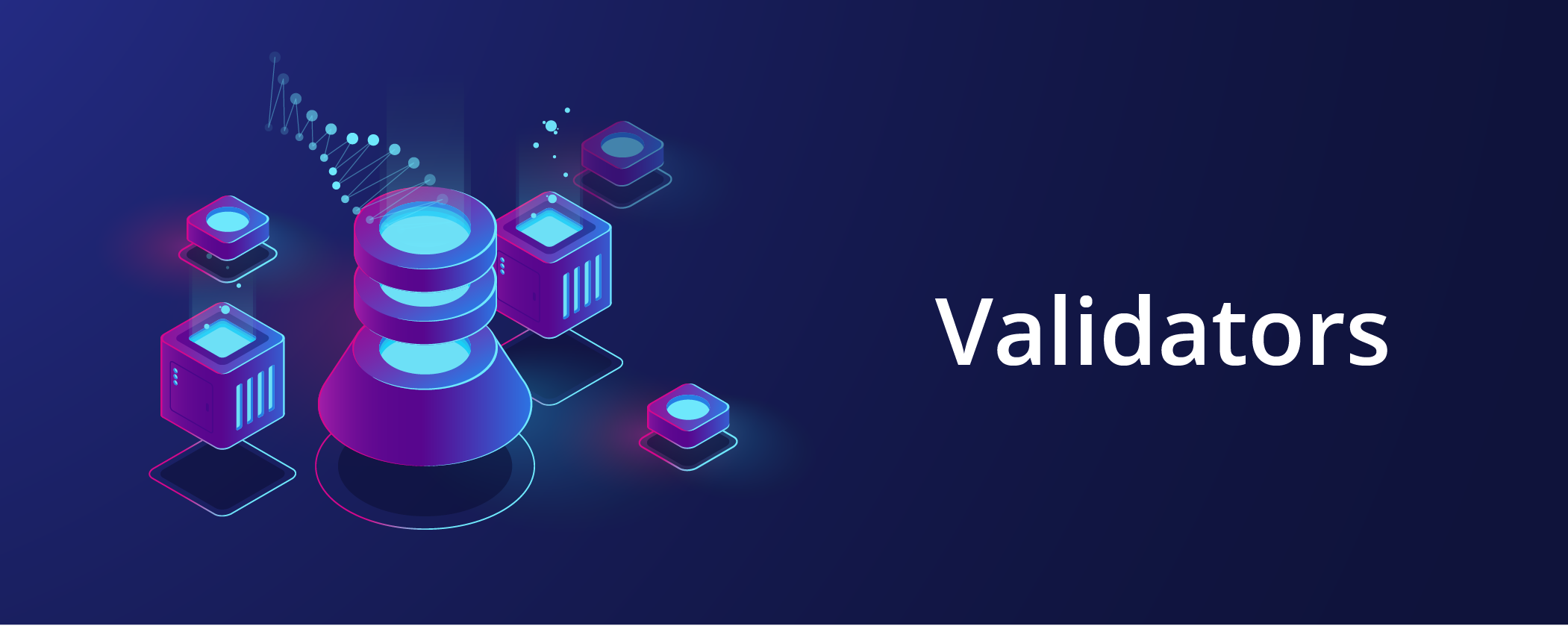
VALIDATORS ON KALIMA
WHAT ARE VALIDATION NODES
Following the Kalima consensus, each validator must validate all blocks and they all must be validated in respect with their time of arrival. The same reward is given to all validators for all block validations. Validators are in charge of producing correct validation hash in time.
In return for their validation work, they receive rewards:
-
0,98 KLX is emitted every block for each master nodes for each blockchain
-
0,002 KLX is emitted every block for validation node for each blockchain
Should they not comply with the consensus algorithm (incorrect hash, or delayed validation), they will face a penalty by seeing their right to validate transactions taken away temporarily.
Becoming a validator requires some technical skills in security, hardware requirements, as well as trust and support from the community, in the form of stake.
TWO TYPES OF VALIDATIONS NODES
There are 2 different validation nodes you can opt for, these validation nodes are regrouped on validation Pools.
Validation Nodes
- Validation nodes oversee controlling transactions integrity. Simple validation nodes don't have to store the ledger. Validation Nodes validate and timestamp transactions.
- Validation nodes are in charge of producing correct validation hash in time to control the hash produced by Leader node.
-
Validation nodes ensure integrity of all transactions.
Master Nodes
- Master Nodes are special validation nodes. They are the main validation nodes of the consensus; they are in charge to elect the Leader Node.
- Master Nodes must store a full copy of the ledger to ensure traceability, integrity, and immutability of all transactions.
- Master nodes store blockchain data and they publish them to the client's node after validation.
- Master nodes are the only ones with administration nodes authorized to access all the data contained within the blockchain, including authorization data.
- Each Kalima Blockchain governance can install as many master nodes as required with a minimum of five of them.
- Each master node can have simple validation nodes in charge to control hash integrity with a limit of 9.
VALIDATION POOLS
Validation Pools run Master Nodes and Validation nodes for the Kalima Mainchain channels and PrivaChains that want to delegate the operation of their validation nodes.
There are several actors in a validation pools, each one has a specific mission and earn KLX rewards accordingly :
The Validation Pool Owner:
The Validation pool Owner owns the Validation pools and has the choice to administrate himself the Validation pool or to delegate to a third party the administration of the Validation pool and the operation of the Master Nodes and Validation nodes.
The reward for a validation pool owner is 5% of all transaction fees generated by all the pool's blockchains in case of total delegation of its management.
The Validation Pool Administrator:
The Validation pool Administrator, administrate the pool as its name indicates. His role is to coordinate the nodes inside his pool to make sure everything every nodes are up and working in a coordinated way.
The reward for a validation pool administrator is 1% of all transaction fees.
The Master Nodes operator:
The Master node operator has the mission to manage and operate one or several Master Nodes in the Validation pool.
The reward for all Master Nodes in a validation pool is 0,098KLX per block per Blockchain in the pool plus 12% of all transaction fees generated by all the pool's blockchains.
Master Nodes share 20% of the new emitted KLX per block (0,098KLX) with the stakers.
Validation Nodes operator:
The Validation node operator has the mission to manage and operate one or several Validation Nodes in the Validation pool.
The reward for all Validation Nodes in a validation pool is 0,002KLX per block per Blockchain in the Validation pool plus 12% of all transaction fees generated by all the pool's blockchains
Validation Nodes share 20% of the new emitted KLX per block (0,002KLX) with the stakers.
As we can see in this document there are several way to participate in the consensus and become a validator on the Kalima Blockchain.
The different roles are the following :
-
Validation Pool Owner
-
Validation Pool Administrator
-
Master Node operator
-
Validation Node operator
There is no restrictions on the number of role you can play in Kalima. You can play all for roles with no restrictions but keep in mind that administrating a pool, running a Master node or a validation requires good technical skills regarding security, hardware and software requirements.
If you are looking to participate in the validation process with no technical skills owning a validation pool and delegating its administration to a third party is a good option.
The last option is staking KLX to participate in the consensus in an easy way and earn associated rewards.